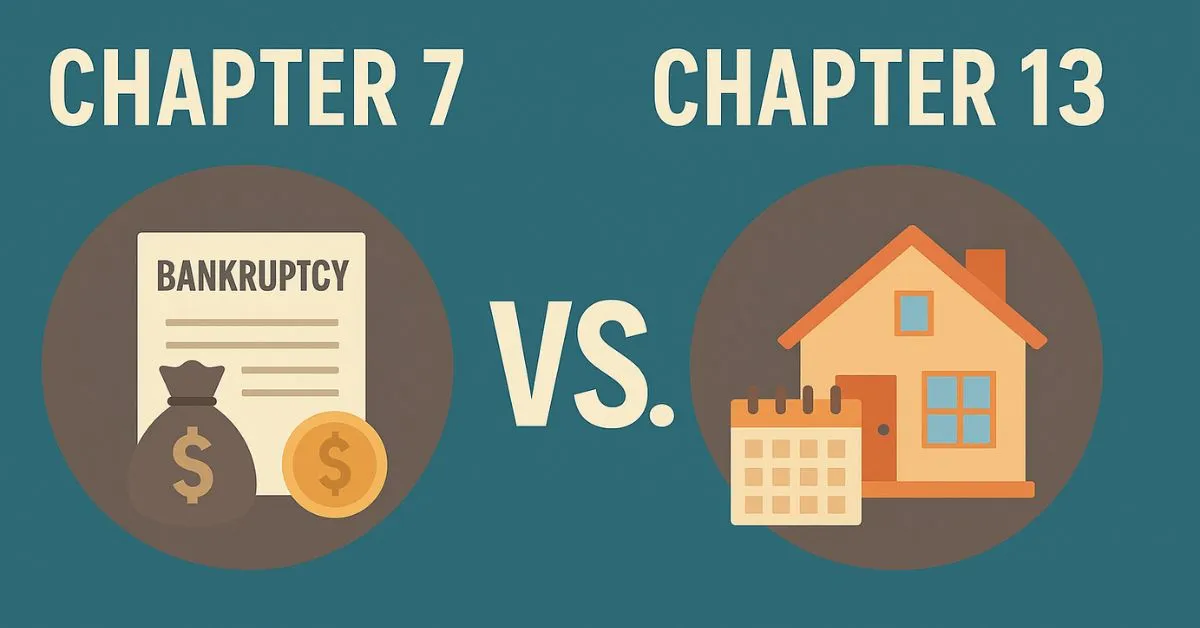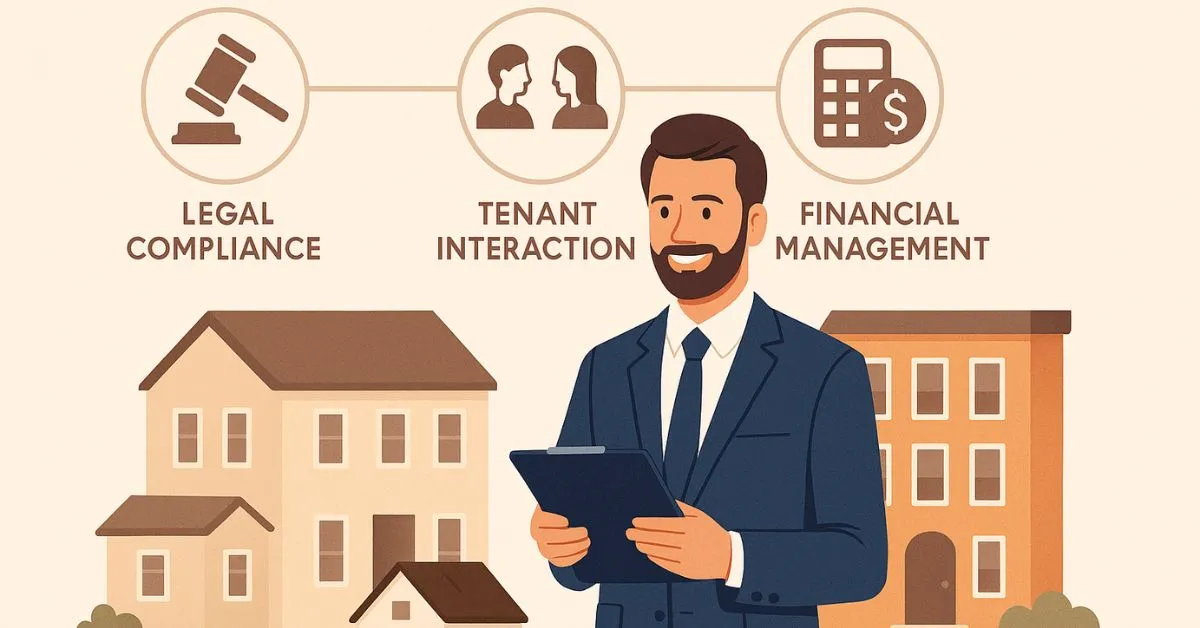Tenant bankruptcy brings a host of complexities, from legal implications to potential financial losses.
Understanding what to do when tenants file bankruptcy is crucial. It can help protect your investment, ensure a smoother process and take immediate steps, and strategies to protect your property.
Chapter 7 and Chapter 13 bankruptcy. Each has unique implications for landlords, and understanding these can help you navigate the process more effectively.
Professional property management brings its benefits. Such services can be invaluable in handling these complex situations, ensuring compliance with local laws, and maintaining tenant satisfaction.
Understanding Tenant Bankruptcy
Tenant bankruptcy is a complex process with significant implications for landlords. When a tenant files for bankruptcy, various legal proceedings come into play.
It is essential to grasp the basic concepts and processes involved. This understanding can help you respond appropriately and protect your interests.
Bankruptcy filings are often accompanied by legal documents and notices. These can seem overwhelming at first. However, they provide crucial information about the tenant's financial situation.
For landlords, key aspects of tenant bankruptcy include the automatic stay, the type of bankruptcy filed, and the potential impact on rental agreements. Each factor plays a distinct role in determining your next steps.
Here's a quick overview of what you need to consider:
- Automatic Stay: Halts eviction proceedings temporarily.
- Chapter 7 Bankruptcy: May discharge tenant debts, affecting rent collection.
- Chapter 13 Bankruptcy: Involves a repayment plan, possibly maintaining rent payments.
Understanding these elements helps you make informed decisions. It also aids in recognizing when professional advice might be needed to navigate legal complexities effectively.
The Automatic Stay and Its Implications
When a tenant files for bankruptcy, an automatic stay is activated. This legal measure temporarily pauses eviction and collection actions.
For landlords, the automatic stay can be challenging. It stops you from pursuing eviction or collecting overdue rent until the stay is lifted. In fact, you can’t even communicate with the tenant about the overdue debut during the stay.
It's crucial to respect this legal boundary to avoid penalties. However, understanding how to proceed within these constraints is vital for protecting your interests.
Chapter 7 vs. Chapter 13 Bankruptcy
Tenants may file for Chapter 7 or Chapter 13 bankruptcy, each with distinct implications. Chapter 7 involves liquidating assets to pay debts, potentially discharging their rent obligations.

Tenants may file for Chapter 7 or Chapter 13 bankruptcy, each with distinct implications. Chapter 7 involves liquidating assets to pay debts, potentially discharging their rent obligations.
Chapter 13, however, sets up a repayment plan. This often allows tenants to continue paying rent over time. It offers more stability for landlords, as it may ensure continued rental payments.
Understanding these differences helps in anticipating the potential impact on your rental agreements and financial forecasts.
Immediate Steps After Tenant Bankruptcy Notification
Receiving notification of a tenant's bankruptcy can feel overwhelming. It's crucial to know your next moves. Acting promptly can safeguard your financial interests.
Begin by reviewing the notification carefully. It will outline the type of bankruptcy filed and other key details. Document every piece of information for future reference.
It's vital to remain calm and strategic. Reacting hastily might lead to legal complications. Here's a brief checklist to guide your initial response:
- Review the bankruptcy notice for details.
- Consult with a legal expert (if needed).
- Assess the current lease agreement.
- Document all interactions with the tenant.
- Explore your rights to file a claim.
Each step is essential in building a well-informed approach. Be proactive, but also ensure every action aligns with legal requirements. Thoughtful planning now can mitigate risks later.
Consulting a Bankruptcy Attorney
Involving a bankruptcy or landlord/tenant attorney can be a wise decision. They offer specialized knowledge and insights that can guide your actions.
An attorney helps ensure that you comply with all legal processes. This minimizes the risk of costly errors or oversights. They can provide invaluable advice tailored to your situation.
Filing a Proof of Claim
Filing a proof of claim is an important step in protecting your interests. This legal document claims the debt the tenant owes you.
Submit this to the bankruptcy court promptly. It establishes your right to potentially recoup some lost income. Always ensure it's completed accurately and thoroughly.
Impact on Rental Agreements and Evictions
Tenant bankruptcy deeply affects existing rental agreements. The legal status of these agreements can change significantly. Understanding this impact is crucial.
Bankruptcy doesn't automatically void a lease. However, its terms may alter. Landlords need to grasp how leases are affected to safeguard their interests.
The automatic stay plays a significant role. It halts eviction processes temporarily, which requires landlords to navigate carefully. Handling this properly is key.
Here's how bankruptcy might influence your rental agreement and eviction plans:
- Lease Validity: Leases may remain valid, but terms could change.
- Eviction Delay: The automatic stay halts evictions during the bankruptcy.
- Payment Adjustments: Rent payments might be delayed or adjusted.
- Legal Compliance: Adhering to laws is essential to avoid penalties.
Navigating these changes requires a well-informed approach. Landlords must be prepared for potential adjustments to lease terms.
Lease Agreements During Tenant Bankruptcy
Understanding the lease's status is the first step. During bankruptcy, tenants might wish to assume or reject the lease. A strategic response from the landlord is crucial.
If a tenant assumes the lease, they can continue renting but must comply with the terms. If they reject it, landlords might regain control sooner. Legal guidance can help identify the best course of action.
A detailed review of your existing lease can clarify any obligations. Ensure any response you have aligns with legal obligations and aims for a favorable outcome.
Seeking Relief from the Automatic Stay
The automatic stay can delay evictions, but relief might be available. Applying for relief allows evictions to proceed.
Such relief requires a compelling reason. It demands careful preparation and understanding of legal nuances to succeed.
Protecting Your Property and Income
Protecting your investment during tenant bankruptcy is vital. Strategic measures ensure continued profitability and property care.
A proactive approach is essential. This includes safeguarding your rental income and maintaining property conditions.
Consider these strategies to protect your interests:
- Maintain Open Communication: Keep dialogue open with tenants and trustees.
- Secure Legal Guidance: Consult legal experts to understand your rights.
- Review Insurance Policies: Ensure adequate coverage against potential losses.
- Documentation: Keep detailed records of all financial and legal interactions.
Remaining vigilant helps in safeguarding both property and financial returns. Adopting these practices minimizes potential disruption and upholds the property's value.
Dealing with the Bankruptcy Trustee
Interacting with the bankruptcy trustee is crucial. They manage the tenant's financial obligations.
Developing a good rapport can facilitate smoother communication. Providing necessary documentation promptly aids the process. Cooperation with the trustee can lead to timely resolutions, benefiting both landlord and tenant. Of course, we recommend that you hire an attorney and have them interact with the trustee if possible.
Handling Security Deposits and Rent Payments
Security deposits may be affected by bankruptcy. Check local laws to determine their status. Generally, security deposits are not impacted in Georgia, but every bankruptcy case is different, so remember to follow any instructions from the judge or your legal counsel.
Rent payments can continue post-filing. Ensure you track any changes in payment schedules. Prompt adaptation to payment alterations helps mitigate financial impact.
The Role of Professional Property Management
Professional property management can be a game-changer when handling tenant bankruptcy. Experts navigate complex legal landscapes on your behalf. They also ensure seamless operations and compliance.

A property manager plays a crucial role in many aspects:
- Legal Compliance: Staying informed about laws reduces risks.
- Tenant Interaction: Maintaining clear, consistent communication.
- Financial Management: Assisting in rent collection and budget planning.
Outsourcing these tasks can greatly reduce stress for property owners. Professional management ensures that tenant issues are handled efficiently, preserving property value and profitability.
Compliance and Tenant Relations
Ensuring compliance is non-negotiable for landlords. Professional managers are well-versed in legal requirements.
They also help manage tenant relations smoothly. Maintaining a positive relationship can lead to better outcomes during bankruptcy situations.
Enhancing Tenant Satisfaction and Retention
Tenant satisfaction is key to reducing vacancies. A satisfied tenant is more likely to renew leases.
Property managers implement strategies to boost satisfaction. Effective communication, timely maintenance, and fair practices contribute to retention. Their expertise ensures tenants feel valued, even during challenging circumstances.
Conclusion: Navigating Tenant Bankruptcy with Expertise
Navigating tenant bankruptcy doesn’t have to be overwhelming. With the right strategies, property owners can mitigate potential pitfalls.
Leverage the expertise of professional property management to maintain stability and profitability. This approach ensures a smoother experience for both landlords and tenants.


